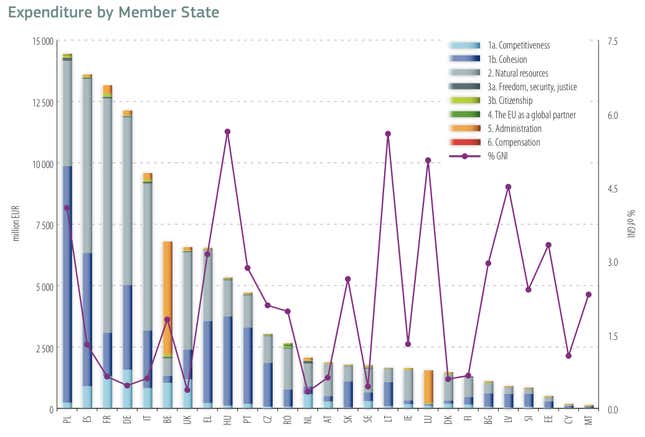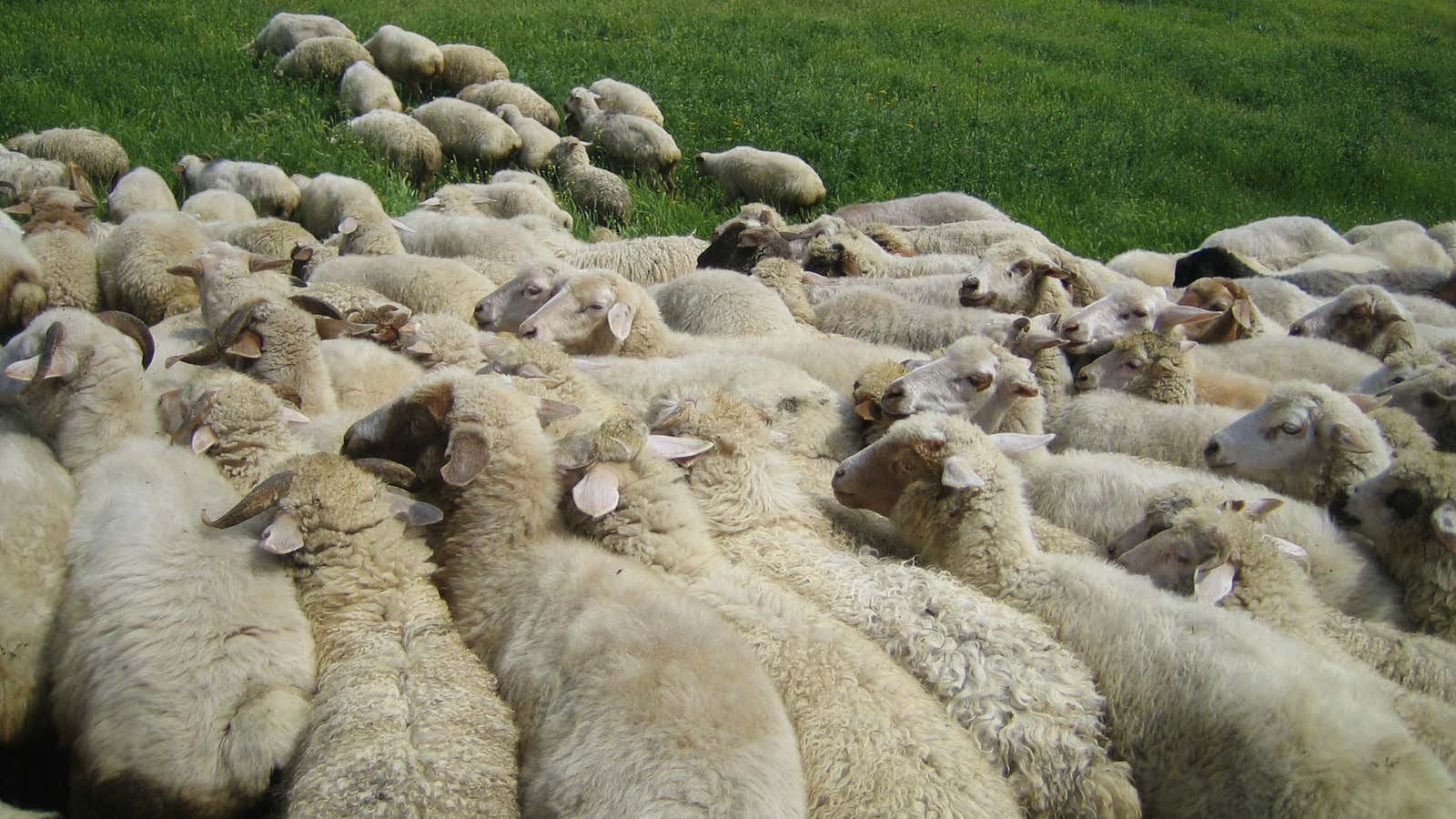A first day of European Union (EU) budget talks wrapped up at midnight in Brussels after concessions were made all around. Herman van Rompuy, the European Council president, revised his draft seven-year spending plan by adding back €11 billion ($14 billion) in “cohesion funds” designed to help countries economically lagging like Poland and Portugal, and another €7.7 billion back into farm subsidies to appease countries like France and Italy.
The overall budget proposed by van Rompuy, €973 billion for 2014-2020, remained the same (paywall), keeping hawkish nations like Germany and the UK happy. Despite a lot of talk by EU leaders this year about spurring competitiveness, €5 billion was cut from a fund to promote competitiveness by building cross-border infrastructure including pipelines and broadband internet.
Another €5.5 billion was slashed from a budget area called “Global Europe”, which covers international affairs and development aid, €8 billion from research, and an area related to small and medium-sized businesses, and €1.6 billion from judicial affairs. Continuing in the spirit of keeping everyone happy, EU civil servant salaries and benefits were left untouched, for now.
Talks resume today at noon with leaders from the EU’s 27 member states. Already some are laying the groundwork for a delay. “Positions remain too far apart,” German Chancellor Angela Merkel, said after the first session ended. “Probably there will be no result at the end of this summit. There may be some progress but it is probable that we will need to meet again at a second stage.”
If leaders can’t agree by the end of today, or even by the weekend, they will meet again in spring. This round of budget talks is expected to prove especially contentious amid the euro crisis, and over a split between net contributing countries such as Austria, Britain, the Netherlands, and Germany, who argue budget cuts should follow cutbacks in EU countries, versus member states like Bulgaria, Poland, Portugal, and Spain, who are either beneficiaries of EU subsidies or debt-crisis relief, or both, and fear a loss of funding. Even those who agree on spending cuts, can’t agree on what to cut or by how much. By some accounts, before the meeting, one-third of EU countries had threatened to veto the budget if it didn’t go their way.
For a better picture on historical spending and allocations, here’s a helpful chart from the 2011 EU budget financial report:

